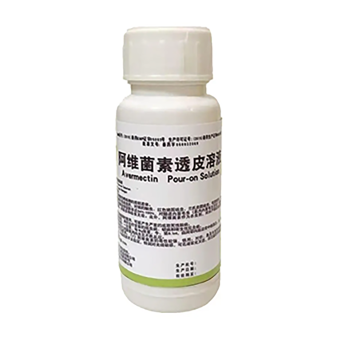- Afrikaans
- Albanian
- Amharic
- Arabic
- Armenian
- Azerbaijani
- Basque
- Belarusian
- Bengali
- Bosnian
- Bulgarian
- Catalan
- Cebuano
- Corsican
- Croatian
- Czech
- Danish
- Dutch
- English
- Esperanto
- Estonian
- Finnish
- French
- Frisian
- Galician
- Georgian
- German
- Greek
- Gujarati
- Haitian Creole
- hausa
- hawaiian
- Hebrew
- Hindi
- Miao
- Hungarian
- Icelandic
- igbo
- Indonesian
- irish
- Italian
- Japanese
- Javanese
- Kannada
- kazakh
- Khmer
- Rwandese
- Korean
- Kurdish
- Kyrgyz
- Lao
- Latin
- Latvian
- Lithuanian
- Luxembourgish
- Macedonian
- Malgashi
- Malay
- Malayalam
- Maltese
- Maori
- Marathi
- Mongolian
- Myanmar
- Nepali
- Norwegian
- Norwegian
- Occitan
- Pashto
- Persian
- Polish
- Portuguese
- Punjabi
- Romanian
- Russian
- Samoan
- Scottish Gaelic
- Serbian
- Sesotho
- Shona
- Sindhi
- Sinhala
- Slovak
- Slovenian
- Somali
- Spanish
- Sundanese
- Swahili
- Swedish
- Tagalog
- Tajik
- Tamil
- Tatar
- Telugu
- Thai
- Turkish
- Turkmen
- Ukrainian
- Urdu
- Uighur
- Uzbek
- Vietnamese
- Welsh
- Bantu
- Yiddish
- Yoruba
- Zulu
Nov . 17, 2024 09:37 Back to list
deworming medicine for sheep
The Importance of Deworming Medicine for Sheep A Comprehensive Guide
Sheep farming is a vital part of the agricultural sector in many countries. While sheep are generally hardy animals, they are susceptible to various health issues, particularly parasitic infections. Among these, gastrointestinal parasites such as nematodes pose significant challenges. Effective management of these parasites is essential for the health and productivity of sheep. This is where deworming medicine plays a crucial role.
Understanding the Need for Deworming
Parasites can have devastating effects on sheep, leading to reduced growth rates, decreased wool quality, and, in severe cases, even death. Young lambs, in particular, are highly vulnerable to these infections, as they have not yet developed strong immune systems. Signs of parasitic infections can include weight loss, anemia, diarrhea, and general lethargy. Regular deworming is necessary to keep these parasites at bay and ensure the overall health of the flock.
Types of Deworming Medicines
Deworming medicines, also known as anthelmintics, can be broadly categorized into several classes
. The most commonly used types include1. Benzimidazoles (BZs) These are one of the oldest classes of dewormers. They work by inhibiting the worms' ability to absorb glucose, effectively starving them. Commonly used BZs include fenbendazole and albendazole.
2. Macrocyclic Lactones (MLs) This class includes drugs like ivermectin and moxidectin, which are highly effective against a wide range of internal parasites. They work by disrupting the nervous system of the parasites, leading to paralysis and death.
3. Imidazothiazoles Levamisole is a representative of this group. It stimulates the nervous system of the parasites and causes their death. Levamisole is particularly effective against a range of nematodes.
deworming medicine for sheep

4. Praziquantel This drug is especially effective against cestodes (tapeworms). Though tapeworm infections are less common, they can still occur and may require specific treatment.
Administering Deworming Medicine
When it comes to deworming sheep, timing and method of administration are vital. A common practice is to deworm sheep in the spring and fall as part of a routine management program. However, the specific schedule may vary based on parasite prevalence in a region and individual farm conditions.
Dewormers can be administered in various forms, including injectables, oral pastes, and feed additives. The choice of administration often depends on the specific product being used and the preferences of the farmer. It's essential to adhere to the recommended dosage and administration guidelines to ensure efficacy and reduce the risk of developing drug resistance.
Monitoring and Rotation of Dewormers
One critical aspect of effective parasite control is monitoring the effectiveness of the deworming program. Farmers should routinely check sheep for signs of parasitic infections, such as poor coat condition or weight loss. Fecal egg counts (FEC) can also be conducted to assess the levels of parasite infestation.
Moreover, rotation of different classes of dewormers is crucial to prevent drug resistance. Over-reliance on a single type of dewormer can lead to populations of parasites that are resistant to that drug, making it ineffective over time. By rotating different classes of anthelmintics, farmers can mitigate this risk and maintain the effectiveness of their deworming protocols.
Conclusion
Deworming medicine is an essential component of sheep management. It plays a significant role in protecting the health and productivity of these valuable animals. By understanding the types of dewormers available, administering them properly, and implementing a strategic management plan, sheep farmers can effectively combat parasite infestations. Continuous monitoring and responsible use of medications will not only safeguard the flock's health but also contribute to the sustainability of sheep farming as a whole. In the long run, an effective deworming strategy ensures healthier sheep, better wool quality, and improved overall farm profitability. As with all health management practices, staying informed and adaptable is key to success in sheep farming.
-
Guide to Oxytetracycline Injection
NewsMar.27,2025
-
Guide to Colistin Sulphate
NewsMar.27,2025
-
Gentamicin Sulfate: Uses, Price, And Key Information
NewsMar.27,2025
-
Enrofloxacin Injection: Uses, Price, And Supplier Information
NewsMar.27,2025
-
Dexamethasone Sodium Phosphate Injection: Uses, Price, And Key Information
NewsMar.27,2025
-
Albendazole Tablet: Uses, Dosage, Cost, And Key Information
NewsMar.27,2025













